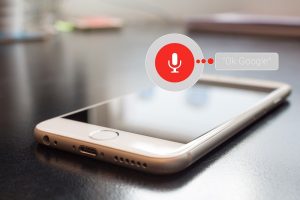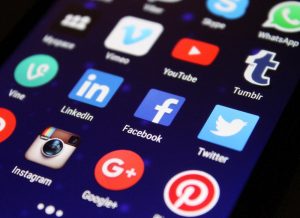You might have experienced this scenario a few times and chalked it off as just a huge coincidence. You have a conversation or mention aloud a certain topic. It could be about the products you plan on buying, places you want to visit, or just conversational chatter. You don’t make any searches related to that topic, no way the internet can know you were thinking about it. Yet while scrolling Facebook hours later, you find an ad about the exact thing you were talking about.
![]() Many people have their own stories about suddenly seeing an ad for something they were just talking about, leading them to suspect that their smartphone or technology may be listening in on their conversation. Facebook’s Vice President of Ads Rob Goldman denied this last year, arguing this may just be purely coincidental. However, given that ads are targeted to appropriate customers, it’s highly suspicious that these ads appear at opportune times. BBC collected stories of people who believed this conspiracy, from newly engaged couples that bought rings at the spur of the moment and received wedding ads the next day, to people who wanted to test this theory and found two new ads related to the topics and keywords they were discussing.
Many people have their own stories about suddenly seeing an ad for something they were just talking about, leading them to suspect that their smartphone or technology may be listening in on their conversation. Facebook’s Vice President of Ads Rob Goldman denied this last year, arguing this may just be purely coincidental. However, given that ads are targeted to appropriate customers, it’s highly suspicious that these ads appear at opportune times. BBC collected stories of people who believed this conspiracy, from newly engaged couples that bought rings at the spur of the moment and received wedding ads the next day, to people who wanted to test this theory and found two new ads related to the topics and keywords they were discussing.
The problem, however, is not Facebook, but Google and your smartphone. By now, we know that Google uses information about you such as your search history, your demographics, and even your location (Go to your Google Maps app and look under the Your Timeline tab if you don’t believe me). But what not a lot of people know is that if your phone is an Android or uses Google services, your phone may be recording you at random times, and it’s a perfectly legal practice.
Check Your Phone, Now
![]() Using your phone, check out this link. Tap on “Filter by date & product,” unselect “All Products,” select “Voice & Audio,” and search. If you’ve ever used the Google Assistant feature, you’ll find a timeline of recordings detailing the times you’ve given a command. However, there may be a few random clips where all you hear is background noise.
Using your phone, check out this link. Tap on “Filter by date & product,” unselect “All Products,” select “Voice & Audio,” and search. If you’ve ever used the Google Assistant feature, you’ll find a timeline of recordings detailing the times you’ve given a command. However, there may be a few random clips where all you hear is background noise.
Very few people realize it is there because, while Google makes all this data available for you, they’re not really announcing that they have this data in the first place. That’s why many of us don’t recognize that Google is taking a lot of info from us, including our audio. You might think there’s not much Google can get out of these clips, but certain algorithms can connect all your data together and build up your profile based on your behavior and interests.
If you’re out of the house at a certain time and Google records a clip, they can determine where you are, who you’re with, and even measure noise levels to estimate when you are asleep. According to Michelle De Mooy, the Acting Director of the Center for Democracy and Technology’s Privacy & Data Project, your data can create a detailed picture of you. And the more Google finds out about your specific interests, the more money it can make out of targeting ads specific to your profile.
Your Phone’s Trigger Word
 Dr. Peter Henway, researcher and former lecturer at Edith Cowan University, says that smartphones will listen in on your voice until it hears a trigger word. It’s why you have to start a command with “Okay, Google” or “Hey, Siri”. Without these triggers, any data you provide stays on your phone.
Dr. Peter Henway, researcher and former lecturer at Edith Cowan University, says that smartphones will listen in on your voice until it hears a trigger word. It’s why you have to start a command with “Okay, Google” or “Hey, Siri”. Without these triggers, any data you provide stays on your phone.
But thanks to nearly 91 percent of people not reading the terms and conditions of any app they download, they don’t realize that some third-party apps still have access to that data. And because you agree to it, that threat could be considered legal. What they’ll do with those snippets, however, is unknown. But at least now you know why certain apps request for microphone access when you don’t really need the microphone to use it.
Preventing Eavesdroppers
Phones with Siri and Google Assistant are always listening, ready for the trigger word. If you don’t feel comfortable with your audio being recorded, you can choose to turn off this feature. On your Android phone, you can go to your settings and turn off Google Assistant.
While it’s unlikely that Facebook and other well-known companies are listening in, the threat of third-parties using recordings exist. I’d recommend you start reading the privacy policies an app provides, but a lot of times, these are really hard to decipher. Unlike GPS, you can’t really tell when the microphone is on.
 To play it on the safe side, stick to popular apps. Don’t download apps by dubious developers (it could also save you from unwanted viruses) and wait one or two weeks before downloading a new app. That gives Google and Apple enough time to screen new apps. Also, restrict your microphone access from apps that don’t really need it. You can check your settings for apps that request microphone use and set it from automatically allow to ask first or forbid.
To play it on the safe side, stick to popular apps. Don’t download apps by dubious developers (it could also save you from unwanted viruses) and wait one or two weeks before downloading a new app. That gives Google and Apple enough time to screen new apps. Also, restrict your microphone access from apps that don’t really need it. You can check your settings for apps that request microphone use and set it from automatically allow to ask first or forbid.
The audio features of modern technology are still relatively new compared to other features. But as a lot of our behavior can be inferred from the sounds we make and the sounds around us, it is a valuable form of data that may be recorded from your smartphone. While it’s not yet a cause for worry, if you don’t feel comfortable sharing that much data with advertisers, then you might want to take steps to avoid letting your smartphone record your audio. Otherwise, it’s just more data they can use to provide ads better targeted to your profile.